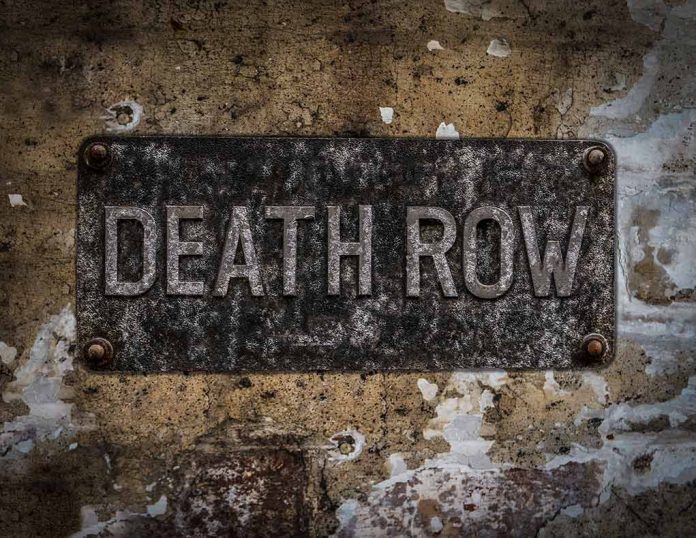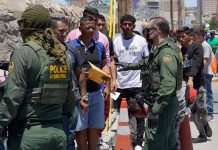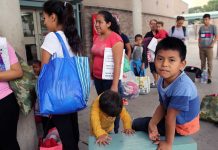
Nigerian President Bola Tinubu orders the release of 29 children facing death penalty for alleged protest participation, sparking a national debate on justice and human rights.
At a Glance
- 29 Nigerian minors, aged 14-17, faced potential death sentences for alleged protest involvement
- President Tinubu ordered their release and an investigation into law enforcement agents
- The case highlights flaws in Nigeria’s criminal justice system and child protection laws
- The situation reflects broader economic and social crises in Nigeria
- International community and rights groups condemn the treatment of the minors
Presidential Intervention in a Controversial Case
In a surprising turn of events, Nigerian President Bola Tinubu has ordered the release of 29 children who were facing potential death sentences for allegedly participating in protests against the country’s severe cost-of-living crisis. The children, aged 14 to 17, were among 76 protesters charged with serious offenses including treason, destruction of property, public disturbance, and mutiny.
The President’s intervention comes after widespread public outrage and international condemnation of the case. Tinubu has also directed an investigation into the law enforcement agents involved in the arrest and prosecution of the minors, signaling a potential shift in how such cases may be handled in the future.
Twenty-nine children could be facing the death penalty in Nigeria after they were arraigned Friday for participating in a protest against the country’s record cost-of-living crisis. https://t.co/BvLeIZu5f8
— ABC News (@ABC) November 3, 2024
Justice System Under Scrutiny
The case has brought Nigeria’s criminal justice system under intense scrutiny, particularly regarding the protection of minors’ rights. Legal experts and civil society organizations have condemned the prosecution of these children, citing violations of the Child Rights Act, which prohibits criminal proceedings and death sentences for minors in Nigeria.
“The Child Rights Act does not allow any child to be subject to criminal proceedings and sentenced to death. Taking minors before a federal high court is wrong, except if the government is able to prove that they are all above 19 years.” stated Akintayo Balogun.
The treatment of these minors has raised serious concerns about the state of human rights in Nigeria. Reports indicate that the children appeared malnourished and exhausted during their court appearance, with some even collapsing due to exhaustion. Their detention was not publicized until their arraignment, further fueling public outrage.
Economic Crisis and Social Unrest
The protests that led to these arrests are symptomatic of deeper economic and social issues plaguing Nigeria. Despite being one of the world’s top crude oil producers, the country struggles with widespread poverty, high unemployment, and inadequate basic services. The UN has classified Nigeria as a “hotspot of very high concern” for acute food insecurity.
The disparity between the nation’s oil wealth and the living conditions of its citizens has fueled frustration and unrest. Chronic corruption and high wages for politicians stand in stark contrast to the general population’s poverty, driving many to voice their grievances through demonstrations.
International Response and Path Forward
The international community is closely monitoring the situation, urging Nigeria to uphold human rights and protect minors. Amnesty International and other rights groups have condemned the unlawful detention and treatment of the children. The case has become a rallying point for those calling for reforms in Nigeria’s justice system and broader societal changes.
As Nigeria grapples with these complex issues, the release of these 29 children marks a potential turning point. It remains to be seen how the country will address the underlying economic and social challenges that led to the protests in the first place. The world watches as Nigeria navigates this delicate balance between maintaining order and protecting the rights of its youngest citizens.
Sources:
Nigeria’s president orders the release of 29 children facing death penalty over protests
29 Nigerian children face death penalty for protesting cost-of-living crisis
29 Nigerian children may be sentenced to death for protesting against cost-of-living crisis













